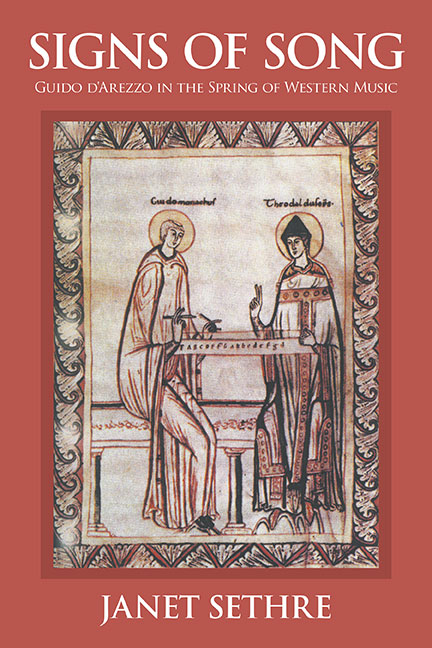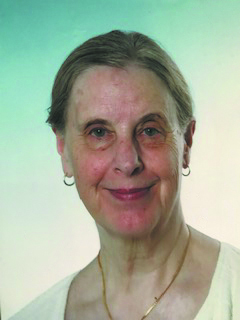Signs of Song: Guido d’Arezzo in the Spring of Western Music
Born around 1,000 years ago, most probably in Tuscany, Guido d’Arezzo is remembered as the father of modern musical notation.

His musical contributions surpassed all former methods of writing music, which did not represent the exact notes to be sung or played. He developed a linear system of musical notation capable of indicating pitch with absolute precision. His innovations accompanied a cultural crisis fundamental to the growth of Western music.
While still a boy, Guido entered the Benedictine monastery at Pomposa, on the Adriatic coast.
He probably died in the hermitage of Fonte Avellana in about 1050. This book envisions his life in relation to ancient musical history, to plainchant, and to the glories and conflicts of medieval monasticism.
In writing of Guido, the author reveals her love for Italy and her fascination with Gregorian chant and Catholic traditions. She says, “Few documents remain concerning Guido’s life. I had to create a framework around his existence, considering ancient musical traditions, plainchant, medieval monasticism, the Italian countryside, and the revolutionary importance of clear notation.”
Buy at Amazon
Buy at Barnes and Noble

About the Author: A native of Seattle, Janet Sethre has lived in Venice for fifty years. She is a retired teacher of English, Italian, French, and Spanish. Her previous works include Venice: Souls’ Mother and Child and Elena’s Voice: A Jewish Woman in Renaissance Venice. Her translations include Gaetano Paxia’s Sancalò: Remembering Sicily.
Venice: Soul’s Mother and Child
 This richly textured work examines Venetians’ “Venice-ness” and the city’s humanity.
This richly textured work examines Venetians’ “Venice-ness” and the city’s humanity.
A cultural history wide in scope and original in conception, it explores how people
have been shaped by Venice and, in turn, have shaped the city.
Meet culture heroes whose defects have helped Venice define its myth and fugitives
from the city’s splendor, such as El Greco. Venice’s prisoners numbered cloistered
women, the mad, and Jews of the Ghetto. People living in close, durable symbiosis
with Venice included Titian, and those fugitives from self who sought wholeness in
Venice included Stravinsky.
Buy at Amazon:
Buy at Barnes and Noble:
Author and Wholesale Orders Click Here: